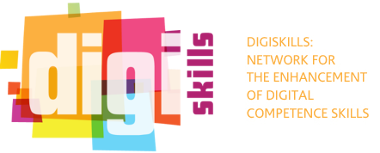Welcome to Digiskills Platform
The strategic guidelines of Europe 2020 put particular emphasis in strengthening horizontal cooperation and the sharing of experience and good practice among the Member States. It’s really crucial for education to fulfil its role in the knowledge triangle, research and innovation objectives and outcomes need to feed back into education, with teaching and learning underpinned by a strong research base, and with teaching and learning environments developed and improved through greater incorporation of creative thinking and innovative attitudes and approaches. Additionally there is a mainstream of eLearning in national policies for the modernisation of education and training, including in curricula, assessment of learning outcomes and the professional development of teachers and trainers.
According to the OECD survey, teachers have few incentives to improve their teaching, as while the most common types of professional development activity available to them are not the most effective. The majority of teachers would like more professional development (particularly on ICT skills, and student behaviour). It has to be mentioned that education and training play a fundamental role in achieving the ‘Europe 2020’ objectives.
All the above create a great deal of activity to ensure basic ICT skills as part of digital competence and learning to learn skills. Current developments in ICT and Web 2.0 technologies have offered the potential for new services, which has significantly transformed our day-to-day personal and professional activities; bare the potential to do the same for education and training. Known as ICT learning, using such technologies can be as simple as accessing a training timetable online, through very complex as developing virtual communities of practice for sharing and creating knowledge
Recent Practices
This practice was created by a secondary school teachers using collaborative tools and project-based learning methodology. It is a 20-hour English-language project, which focuses on media, including the press photography. The project aims at the development of English language skills in addition to improving the digital literacy of students, expand historical knowledge, creativity and social sensitivity learning.
- Brief history of social networks.People have worked for belonging to groups with which they identify.
- Social Network concept.Digital identity.“Catfish program”.Main networks to be used along this practice: Twitter and Facebook.
- Collaborative construction of an item on "Technological Advances" by using Facebook,Twitter. Attach hash tags. Upload the stuff they provide together with pictures, videos, links, etc. so as to finish the task.
The curriculum of Social Science for the first two years of Secondary School includes, among other lessons, physical and political features maps, rivers, …in all Europe. With this easy practice we try to add one more activity making use of something in which our pupils are already pretty competent: ICT
Since about 12 years ago Moodle (software) is being developed so as to give on-line courses. It started in Australia, at Curtin University, with Martin Dougiamas, who realized about how important it was to incorporate the computers to the teaching process.
As it is free software it enjoys a great support of developers, which makes the product better and better for students, teachers and developers all over the world.
Before the event took place students learned and simulated movements in different settings (sports, machines, transport vehicles, etc.) in their preparatory phase
During the event in the Prater the students were divided into three groups and together with teachers and technical equipment went to six different rides to test the devices and different physics concepts.
Students search for negative examples of wasting energy and environmental resources in the school building and find solutions to improve the energy effectiveness.
Just looking at the world that surrounds us, we can see that, whether we like it or not, images are more and more present in our daily lives. And this happens so frequently, so fast and so extensively that they take over and reduce any other type of communication. We are getting so overloaded with images that we can hardly process what they mean.
- ‹‹
- 6 of 6













Best Practice